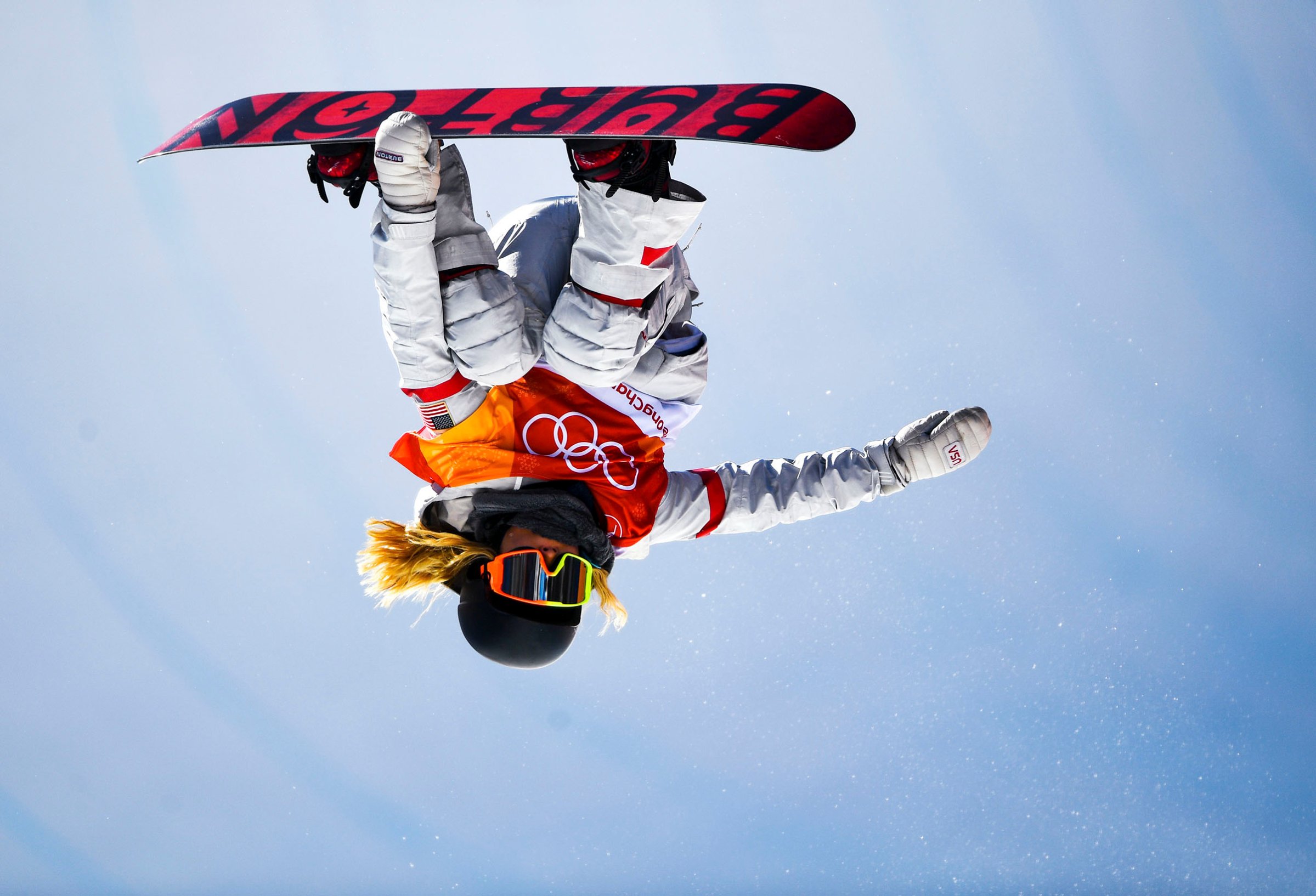
All Olympic Games become a platform for causes bigger than the events they showcase. But the run-up to the 2018 Winter Olympics threatened to overshadow anything set to take place on the snow and ice in PyeongChang, South Korea. The location of the global gathering, barely 50 miles from the heavily armed demilitarized zone that marks the border with North Korea, guaranteed that the rogue state and the nuclear ambitions of its unpredictable leader would cast a fraught shadow over the action. For a while, it did.
The flourish of eleventh-hour diplomacy, during which North Korea sent a delegation of 22 athletes, 229 cheerleaders and leader Kim Jong Un’s sister Kim Yo Jong to the Games and the two nations marched as one in the opening ceremony, was as controversial as it was conciliatory. U.S. Vice President Mike Pence remained seated as the Korean athletes entered the stadium. Spectators debated whether the hundreds of red-snowsuit-clad North Korean cheerleaders marked a historic opening—or canny propaganda from an oppressive regime.
But then, finally, the Games began. And as if by command, the drama of cable news gave way to the joy of the athletes themselves. On day one of the competition, Norwegian cross-country skier Marit Bjorgen, 37, won a silver medal to become the most decorated female Winter Olympian of all time, her 11th piece of hardware.
As older athletes were honored, younger ones were anointed. American Red Gerard, a pint-size 17-year-old from Colorado by way of Cleveland, became the youngest person in history to win gold in the slopestyle snowboard event, a feat that doubled as the U.S.’s first gold of the Games. “I never thought he would f-cking win it,” his older brother Creighton gushed as the extended Gerard family celebrated the win with mountainside cans of Korean beer. “I can’t believe this just happened. It’s written in stone, man.”
Gerard’s unlikely triumph started a huge run for U.S. snowboarders in PyeongChang. Jamie Anderson, the yogi who carries tree bark and incense in her travel case, became the first female snowboarder to win two Olympic medals, defending the women’s slopestyle gold she won four years ago in Sochi. On the halfpipe, Shaun White, the flame-haired American snowboard star, avenged a disappointing finish in Sochi in spectacular fashion. The last rider of his event, he landed a back-to-back 1440—four full revolutions in the air—to steal gold from Ayumu Hirano of Japan at the buzzer. The dramatic victory made White the first snowboarder to win three Olympic gold medals. But the moment was marred by White’s unwillingness to address a sexual- harassment lawsuit filed by a former drummer in his rock band. White settled the suit, which alleged that he “sent sexually explicit and graphic images” to the woman in 2016. Asked about it after his win, White at first dismissed the allegations as “gossip,” before apologizing for his choice of words.
Another Olympian offered a moment of unadulterated joy. Chloe Kim, a fearless 17-year-old from Torrance, Calif., dominated the competition on the halfpipe and melted hearts off it. A snowboard prodigy, Kim qualified for Team USA four years ago, but was still two years shy of the Olympic age minimum. In PyeongChang, she eviscerated the field, becoming the first woman to land back-to- back 1080s—three full revolutions in the air—at an Olympics. With Lady Gaga playing in her earbuds, Kim won gold with a score that was more than eight points higher than silver medalist Liu Jiayu of China. In between her runs, Kim tweeted about her hankering for ice cream and lamented her decision to leave a breakfast sandwich unfinished, making her “hangry.”
All of it endeared the young star to fans in her native country and host South Korea, the birthplace of her parents. Kim’s cheering section was filled with relatives, and local media has covered her like a celebrity, trailing her through the Olympic village. After she won gold, somehow exceeding the seemingly impossible expectations, her father Jong Jin Kim pumped his fists in the air and shouted, “American dream!”
The figure-skating arena has never been a refuge from drama, and these Games have done their part to uphold the reputation. Some of it came in the form of politics, as when the openly gay American skater Adam Rippon took aim at Pence for his record on LGBT rights. But there was more intrigue on the ice. American Mirai Nagasu launched herself into the air—and the history books—for three and a half revolutions to become the first U.S. woman to land a triple axel at the Olympics, proving that it’s not just the boys who can own the most challenging jumps. Rippon, meanwhile, helped the U.S. win the bronze in team skating with a crisp and poised routine. And the ice-dancing duo of Scott Moir and Tessa Virtue helped power Canada to gold with a charged free-dance performance that made them among the most decorated Olympic figure skaters of all time—and cemented their viral fame.
Those moments, the embraces on ice and the magic in the air, will likely serve as the legacy of these Games. They are our quadrennial reminder that barriers—physical, mental, social, even political— are of our own making. And they’re just waiting to be broken.
More Must-Reads From TIME
- The 100 Most Influential People of 2024
- The Revolution of Yulia Navalnaya
- 6 Compliments That Land Every Time
- What's the Deal With the Bitcoin Halving?
- If You're Dating Right Now , You're Brave: Column
- The AI That Could Heal a Divided Internet
- Fallout Is a Brilliant Model for the Future of Video Game Adaptations
- Want Weekly Recs on What to Watch, Read, and More? Sign Up for Worth Your Time
Write to Sean Gregory/PyeongChang at sean.gregory@time.com